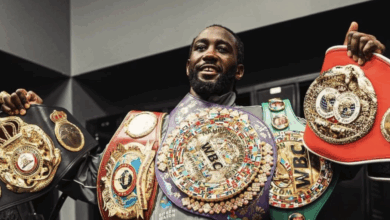The Common Ground Between Martial Arts and Gambling
In a world where discipline and strategy reign supreme, martial arts and gambling might seem like unlikely bedfellows. Yet, beneath the surface, these two seemingly disparate fields share a profound connection in their reliance on mental acuity and tactical prowess. This article explores how the skills honed in the disciplined practice of martial arts can translate into the strategic thinking required in gambling, and vice versa. By examining the parallels between these two disciplines, we uncover insights into how mastering one can provide unexpected benefits in the other. For those looking to leverage these insights into tangible outcomes, finding the right approach can be as crucial as a Wanted Win promo code in gambling, unlocking potential and maximizing success.
The Philosophy of Mind and Body
The intricate connection between mental acuity and physical action forms a cornerstone in both martial arts and gambling, underscoring a philosophy where mind and body must operate in concert. Each discipline, though distinct in application, demands a synchronicity of thought and action that can be transformative for practitioners and players alike.
Martial Arts Focus
In martial arts, the union of mind and body is not merely a philosophical ideal but a practical necessity. Practitioners learn to harness their mental focus to control physical movements with precision. This mental discipline is vital as it enhances the ability to predict and counteract an opponent’s strategies effectively. By training consistently, martial artists achieve a state of ‘mushin,’ a Zen concept meaning “no mind,” which describes a mind not fixed or occupied by thought or emotion and thus open to everything. This state allows a practitioner to react to threats instinctively and without hesitation, a skill that is honed through years of disciplined practice and meditation.
Gambling Focus
Similarly, the world of gambling requires a keen mental discipline, where the psychological interplay between players can determine the outcome of a game. Successful gamblers must cultivate an ability to remain emotionally detached and strategically aware, particularly in games like poker where ‘bluffing’ involves psychology as much as probability. Players learn to manage their emotional responses—staying calm under pressure and strategically deceptive when necessary. This control over one’s emotions and decisions in the face of unpredictable dynamics mirrors the martial artist’s control over both their internal states and external movements.
In both realms, the philosophy of integrating mind and body empowers individuals to navigate and control complex environments. This synthesis not only enhances personal performance but also elevates the level of play, whether on the mat or at the table.
Strategy Development and Execution
The development and execution of strategy are critical components in both martial arts and gambling. Each requires a deep understanding of opponent behavior and environmental conditions, coupled with the ability to implement detailed tactical plans effectively. This section delves into how strategic thinking, shaped by rigorous practice and experience, is crucial to achieving success in both fields.
Martial Arts Strategy
Martial arts strategy is much more than physical confrontation; it is about understanding the opponent’s psychology, strengths, weaknesses, and predicting their next move. Practitioners often employ a combination of observational skills, historical knowledge of various fighting styles, and an acute sense of timing to gain an upper hand. Strategies might include:
- Adapting Styles: Switching between aggressive or defensive postures based on the opponent’s behavior.
- Energy Conservation: Managing one’s energy efficiently to sustain endurance throughout the fight.
- Feinting and Deception: Using deceptive movements to create openings for strikes or to mislead the opponent about one’s true intentions.
- These tactics are not static but evolve during the encounter, requiring the martial artist to continuously assess and adapt to the fluid dynamics of combat.
Gambling Strategy
In gambling, strategy involves not just playing the odds, but also playing the person. Successful gamblers understand that every decision made at the table sends a message, and interpreting these signals correctly can be just as important as the statistical odds of the game itself. Key strategic elements in gambling include:
- Odds Calculation: Continuously assessing the probability of various outcomes and adjusting bets accordingly.
- Bankroll Management: Ensuring that the amount of money wagered is sustainable over the long term.
- Psychological Warfare: Employing tactics such as bluffing or betting aggressively to intimidate or mislead opponents about one’s actual hand or intentions.
Like martial artists, gamblers must also remain flexible, adapting their strategies in response to the flow of the game and the actions of their opponents. The ability to maintain emotional neutrality and make clear-headed decisions under pressure is essential for both disciplines.
Psychological Parallels Between Martial Arts and Gambling
The convergence of martial arts and gambling is most evident in their psychological dimensions. Both fields demand far more than mere physical skill or an understanding of strategy; they require a formidable psychological fortitude. Practitioners and players alike must develop a strong mental framework to successfully navigate the intense pressures and unpredictable challenges inherent in both disciplines. This psychological readiness is not just about enduring stress but transforming it into a driving force that enhances performance. It involves honing the mind to be as sharp and flexible as the body, enabling decisive actions, quick adaptations, and sustained focus under high-stress conditions. In exploring these parallels, we uncover the profound impact psychological conditioning has on achieving excellence in both martial arts and gambling.
Mental Resilience in Martial Arts
In martial arts, mental resilience is as critical as physical prowess. The ability to stay focused, calm, and decisive under stress is what separates the proficient from the masterful. Martial artists train their minds to handle pain, fatigue, and fear, transforming these potential setbacks into sources of strength. Key aspects of mental training include:
- Emotional Control: Maintaining composure to make strategic decisions, regardless of the physical intensity of the fight.
- Mindfulness: Being fully present in the moment, which helps in anticipating the opponent’s moves and responding effectively.
- Resilience Building: Developing the mental toughness to overcome setbacks and continue fighting with determination.
Mental Agility in Gambling
Gamblers, much like martial artists, must cultivate a sharp mental edge. The stakes are high, and the environment is often intense, requiring a level of mental agility that can manage stress, calculate risks, and capitalize on opportunities swiftly. Essential mental skills in gambling include:
- Risk Assessment: Quickly evaluating the potential gains and losses of a decision under uncertain conditions.
- Impulse Control: Avoiding rash decisions and remaining patient, which is crucial in games that can turn with a single play.
- Strategic Flexibility: Adapting one’s strategy based on the flow of the game and the behavior of other players.
In both arenas, practitioners and players develop a psychological resilience that not only aids in immediate success but also contributes to long-term achievement and personal growth.
Practical Applications and Cross-Disciplinary Benefits
Exploring the intersections between martial arts and gambling not only offers theoretical insights but also practical applications that can enhance performance in both domains. Engaging in one discipline can provide valuable lessons and skills transferable to the other, promoting a holistic approach to strategy and mental conditioning.
In martial arts, the disciplined practice of strategizing and anticipating opponent moves sharpens the mind, fostering skills that are directly applicable to gambling scenarios. Martial artists’ ability to remain calm under pressure and adapt quickly to changing situations can dramatically improve their gambling strategies, especially in games that require a deep understanding of opponent behavior, like poker.
Conversely, the strategic calculations and risk management inherent in gambling can benefit martial artists by enhancing their decision-making skills. The mental endurance and focus developed at the gambling table can translate into better concentration and psychological resilience during combat, allowing martial artists to maintain strategic thinking even in high-stress situations.
By embracing both disciplines, individuals can create a feedback loop where skills from one enhance the other. This cross-disciplinary training not only broadens one’s skill set but also encourages a more nuanced understanding of strategy and mental agility, which are crucial for success in any competitive field.
Conclusion
The exploration of martial arts and gambling reveals a surprising yet undeniable synergy between these two disciplines, particularly in their strategic and psychological aspects. Both fields demand not only a high degree of skill and knowledge but also a deep commitment to mental and physical discipline. The principles of strategy development, execution, and the mental resilience required to excel are remarkably similar, highlighting how each domain enriches the understanding and application of the other.
Practitioners in both martial arts and gambling benefit from this cross-disciplinary insight, gaining a unique perspective on how to approach challenges and opportunities. By studying the methods and mentalities of each, individuals can enhance their own practices, whether on the mat or at the gambling table, leveraging skills from one arena to improve in the other.
This connection between martial arts and gambling underscores a broader principle that mastery in any field involves a deep integration of mind, body, and strategy. The lessons learned in this exploration can serve as valuable guides for anyone looking to refine their tactical thinking and psychological resilience in any competitive or high-pressure environment.


